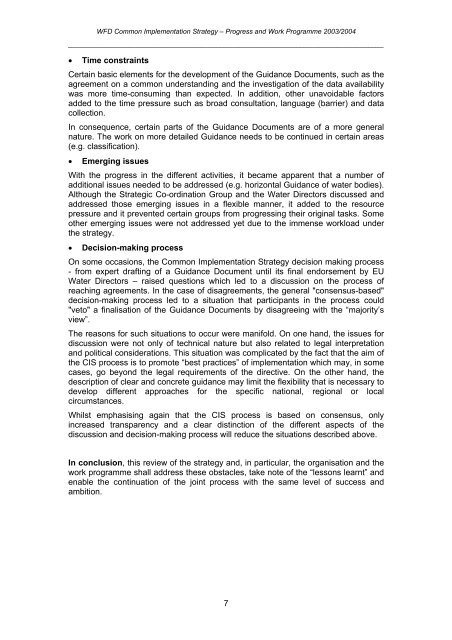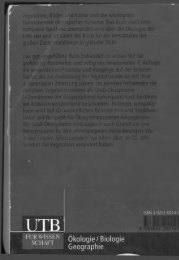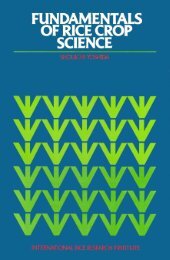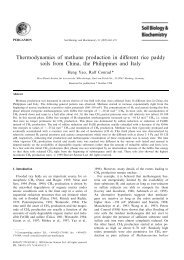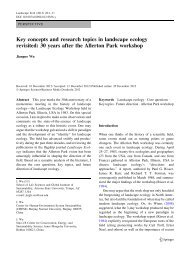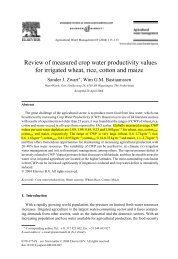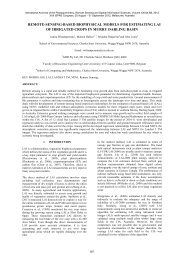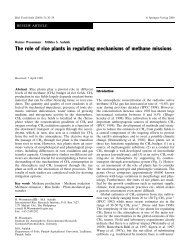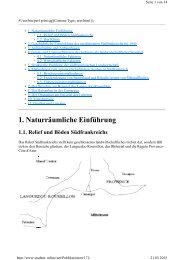WATECO - 2003 - Common implementation strategy for the Water Frame
WATECO - 2003 - Common implementation strategy for the Water Frame
WATECO - 2003 - Common implementation strategy for the Water Frame
Create successful ePaper yourself
Turn your PDF publications into a flip-book with our unique Google optimized e-Paper software.
WFD <strong>Common</strong> Implementation Strategy – Progress and Work Programme <strong>2003</strong>/2004<br />
___________________________________________________________________________________<br />
• Time constraints<br />
Certain basic elements <strong>for</strong> <strong>the</strong> development of <strong>the</strong> Guidance Documents, such as <strong>the</strong><br />
agreement on a common understanding and <strong>the</strong> investigation of <strong>the</strong> data availability<br />
was more time-consuming than expected. In addition, o<strong>the</strong>r unavoidable factors<br />
added to <strong>the</strong> time pressure such as broad consultation, language (barrier) and data<br />
collection.<br />
In consequence, certain parts of <strong>the</strong> Guidance Documents are of a more general<br />
nature. The work on more detailed Guidance needs to be continued in certain areas<br />
(e.g. classification).<br />
• Emerging issues<br />
With <strong>the</strong> progress in <strong>the</strong> different activities, it became apparent that a number of<br />
additional issues needed to be addressed (e.g. horizontal Guidance of water bodies).<br />
Although <strong>the</strong> Strategic Co-ordination Group and <strong>the</strong> <strong>Water</strong> Directors discussed and<br />
addressed those emerging issues in a flexible manner, it added to <strong>the</strong> resource<br />
pressure and it prevented certain groups from progressing <strong>the</strong>ir original tasks. Some<br />
o<strong>the</strong>r emerging issues were not addressed yet due to <strong>the</strong> immense workload under<br />
<strong>the</strong> <strong>strategy</strong>.<br />
• Decision-making process<br />
On some occasions, <strong>the</strong> <strong>Common</strong> Implementation Strategy decision making process<br />
- from expert drafting of a Guidance Document until its final endorsement by EU<br />
<strong>Water</strong> Directors – raised questions which led to a discussion on <strong>the</strong> process of<br />
reaching agreements. In <strong>the</strong> case of disagreements, <strong>the</strong> general "consensus-based"<br />
decision-making process led to a situation that participants in <strong>the</strong> process could<br />
"veto" a finalisation of <strong>the</strong> Guidance Documents by disagreeing with <strong>the</strong> “majority’s<br />
view”.<br />
The reasons <strong>for</strong> such situations to occur were manifold. On one hand, <strong>the</strong> issues <strong>for</strong><br />
discussion were not only of technical nature but also related to legal interpretation<br />
and political considerations. This situation was complicated by <strong>the</strong> fact that <strong>the</strong> aim of<br />
<strong>the</strong> CIS process is to promote “best practices” of <strong>implementation</strong> which may, in some<br />
cases, go beyond <strong>the</strong> legal requirements of <strong>the</strong> directive. On <strong>the</strong> o<strong>the</strong>r hand, <strong>the</strong><br />
description of clear and concrete guidance may limit <strong>the</strong> flexibility that is necessary to<br />
develop different approaches <strong>for</strong> <strong>the</strong> specific national, regional or local<br />
circumstances.<br />
Whilst emphasising again that <strong>the</strong> CIS process is based on consensus, only<br />
increased transparency and a clear distinction of <strong>the</strong> different aspects of <strong>the</strong><br />
discussion and decision-making process will reduce <strong>the</strong> situations described above.<br />
In conclusion, this review of <strong>the</strong> <strong>strategy</strong> and, in particular, <strong>the</strong> organisation and <strong>the</strong><br />
work programme shall address <strong>the</strong>se obstacles, take note of <strong>the</strong> “lessons learnt” and<br />
enable <strong>the</strong> continuation of <strong>the</strong> joint process with <strong>the</strong> same level of success and<br />
ambition.<br />
7


